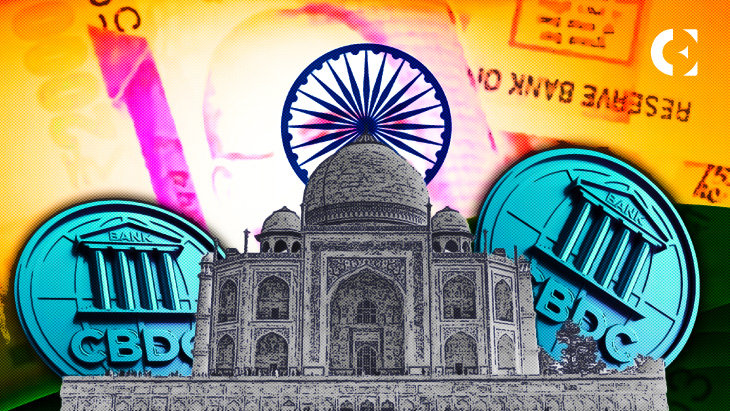- The Reserve Bank of India proposes its own CBDC concept
- The Indian CBDC aims to be a legal tender that exchanges at a one-to-one ratio with the Indian Rupee.
- Notably, The RBI states that the Indian CBDC will support smart contracts.
The Reserve Bank of India (RBI) on October 7, 2022 released a concept note on the Central Bank Digital Currency (CBDC). Furthermore, it stated the features and the purpose of its own digital currency in a press release.
Kashif Raza, host of Web3KiDuniya show and a Web3 enthusiast wrote a series of post on Twitter to explicitly explain the features of the proposed CBDC.
As per the concept note, the Indian CBDC (e₹) would be a legal tender that exchanges at a one-to-one ratio with the current Indian Rupees. It mentioned that citizens can take loans with the digital cash.
Moreover, it discusses how Indian e-cash would be non-remunerated, implying that holding CBDC in a digital wallet will generate no interest for the holder. As such, the regulatory authority disabled this window to mitigate the risk of a liquidity crisis for commercial banks as people exchange physical cash for CBDC.
Furthermore, as per indicated in the document, the Indian Central bank aims to make financial services more accessible to the unbanked and underbanked population. Moreso, it subsequently promised to provide the offline capability to enable transactions without internet use, allowing access in areas with weak or nonexistent internet connectivity.
In addition to this, the note further stated there will be two types of CBDCs: retail and wholesale. The retail CBDC would be available for all, including the private sector non-financial, businesses, and more. The wholesale CBDC, on the other hand, is for restricted access for select financial institutions intended to settle interbank transfers.
The note further states that RBI will create and issue tokens to authorized entities called Token Service Providers (TSPs). These TSPs would distribute the digital cash to end-users who participate in retail transactions.
Among all the features it also went on to state that the Indian CBDC will be a programmable network that supports smart contracts, allowing private fintech businesses to build innovations on top of it.
Furthermore, the note states, the technical difference between the Rupee and digital money is that the CBDC is a liability on the central bank balance sheet. In contrast, digital money is a commercial bank balance sheet liability.
Disclaimer: The information presented in this article is for informational and educational purposes only. The article does not constitute financial advice or advice of any kind. Coin Edition is not responsible for any losses incurred as a result of the utilization of content, products, or services mentioned. Readers are advised to exercise caution before taking any action related to the company.







